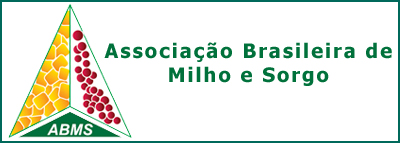MAIZE TOLERANCE TO DEFOLIATION DEPENDS ON THE CULTIVAR AND THE CROP GROWTH STAGE
DOI:
https://doi.org/10.18512/1980-6477/rbms.v13n3p300-311Keywords:
fenologiaAbstract
The cultivar’s choice may interfere on damages caused by defoliation to maize. This work was carried out aiming to evaluate the impact of defoliation performed at different growth stages of maize cultivars with contrasting genetic bases. The experiment was set in Lages, SC, during the 2010/2011 and 2011/2012 growing seasons. Three cultivars were assessed: the open-pollinated variety (OPV) SCS 155 Catarina, the triple hybrid (TH) P30B30 and the single-cross hybrid (SH) P30R50H. Each cultivar was defoliated when plants had eight (V8) twelve (V12), sixteen (V16) and twenty (V20) expanded leaves. A control without defoliation was also tested. The SH was more productive than the OPV in all treatments, excepting when leaves were removed at V20. Defoliations performed at V8 and V12 reduced hybrids grain yield up to 9% whereas for the VPA yield reduction was higher than 24% at those growth stages. The defoliation carried out at V20 decreased grain yield of all cultivars by more than 70%, in comparison with the control. The OPV was more sensitive than hybrids to defoliations imposed at V8 and V12. Such behavior indicates that maize tolerance to defoliation depends on the cultivar and that the OPV higher genetic variability does not increase its endurance to the defoliation stress.
Downloads
Published
How to Cite
Issue
Section
License
Authors retain copyright and grant the journal right of first publication with the work simultaneously licensed under the Creative Commons Attribution License that allows the sharing of work and recognition of the work of authorship and initial publication in this journal.
Authors are able to take on additional contracts separately for non-exclusive distribution of the version of the paper published in this journal (eg, in an institutional repository or publish as a book), with acknowledgment of its initial publication in this journal.
Authors are permitted and encouraged to post their work online (eg, in institutional repositories or on their website) at any point before or during the editorial process, as this may leadto productive exchanges, as well as increase the impact and citation of published work.



